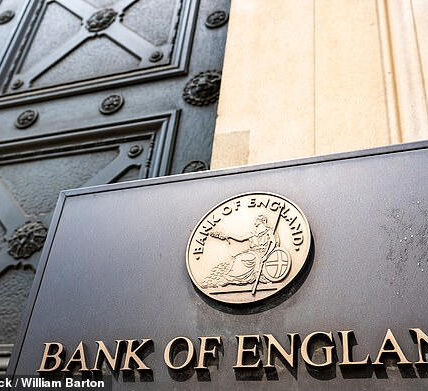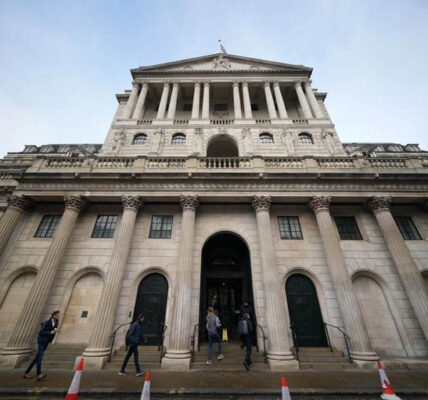France Pension Crisis Impact on UK: A Deep Dive
France Pension Crisis Impact on UK – Discover how France’s pension system turmoil might spell trouble for Britain. Explore the challenges facing both countries and what might lie ahead.
The France Pension Crisis Impact on UK is becoming increasingly apparent as political and economic pressures in France raise concerns about similar issues potentially affecting Britain. In recent months, the French pension system has been in turmoil, and the potential fallout could extend beyond France’s borders. Here’s a closer look at the situation and its implications for the UK.

France’s Pension Reform Crisis
France’s pension system is facing a crisis, largely due to President Emmanuel Macron’s controversial pension reforms. Macron’s plan to raise the retirement age from 62 to 64 by 2030 has sparked widespread protests and political backlash. The reforms also require workers to contribute for 43 years to receive a full state pension, up from the current 42 years.
This policy was designed to address France’s growing pension deficit, as the country’s population of pensioners has surged to 17 million, up from 13 million in 2004. However, the proposed changes have been met with intense opposition. Many French citizens argue that working longer is unjust, particularly given that France’s retirement age is already lower than in many other European countries. For comparison, Germany is raising its retirement age from 65 to 67, and Italy’s is currently 67.
Political Instability and Economic Concerns
The recent French parliamentary elections have intensified the pension crisis. The far-Left and far-Right parties, both opposed to Macron’s reforms, gained significant traction. The New Popular Front (NFP), a coalition of leftist parties, now holds the most seats in parliament, while Macron’s centrist coalition is in second place. The far-Right National Rally (RN) is in third. This political shift makes it challenging for Macron to push through his reforms.
The far-Left and far-Right parties have proposed their own alternatives, including reducing the retirement age from 62 to 60 and cutting the years required for a full pension from 43 to 40. These proposals could have severe financial implications, potentially costing between €10 billion and €60 billion. This would create a significant fiscal gap, adding to the €70 billion France needs to cut its budget deficit below 3% of GDP by 2027, as required by EU regulations.
Potential Impact on the UK
The France Pension Crisis Impact on UK is not just a theoretical concern. The economic and political instability in France highlights the challenges faced by pension systems in aging societies. With France’s budget deficit standing at 5.5% of GDP in 2023 and pension spending at 13.9% of GDP, the country is grappling with high debt and strained public finances.
In the UK, similar issues are brewing. The state pension age is set to increase from 66 to 67 by 2028 and to 68 by the mid-2040s. However, recent declines in life expectancy and increasing health issues among older workers complicate this plan. Former Chancellor Jeremy Hunt has already delayed decisions on further increases due to these factors.
The Growing Fiscal Pressure
The UK’s state pension system is under significant strain. Pension spending has risen dramatically, from 2% of GDP in the early 1950s to over 7% today. Office for Budget Responsibility forecasts predict that state pension spending will increase by £23 billion in 2027-28 compared to the early 2020s. This increase is largely driven by the “triple lock” policy, which guarantees that pensions rise in line with the highest of inflation, wage growth, or 2.5%.
A recent report from the International Longevity Centre suggests that to maintain the current ratio of workers to retirees, the state pension age may need to rise to 70 by 2040. This could be challenging, as many older adults are not in good enough health to continue working. Currently, around 2.8 million people of working age are not in the workforce due to ill health, up from about two million before the 2020 lockdown.
Political and Social Implications
The France Pension Crisis Impact on UK is also a social issue. In Britain, the idea of increasing the retirement age is deeply unpopular and could have significant consequences for those approaching retirement. Liz Fairweather from Age UK highlights the difficulties faced by those who are already struggling to get by on working-age benefits and are looking forward to the security of state pension payments.
The alternative to increasing the retirement age—reducing the generosity of the state pension—is also politically risky. Labour has committed to maintaining the triple lock, which could further strain the public finances. France’s experience shows that pension reforms can be highly contentious and politically volatile, with potential repercussions for the broader economy.
What Lies Ahead
As France grapples with its pension crisis, the France Pension Crisis Impact on UK is a reminder of the broader challenges faced by aging societies. Both countries are confronting the realities of longer life expectancies and shrinking workforces, and the choices they make will have significant implications for their financial stability and social cohesion.
For the UK, the situation in France serves as a cautionary tale. As political leaders weigh their options, they must consider both the economic and social impacts of their decisions. The lessons from France’s pension crisis could help shape the future of pension reform in Britain and beyond.
ALSO READ:
“UK Interest Rates Outlook: 5 Game-Changing Insights You Need to Know”



